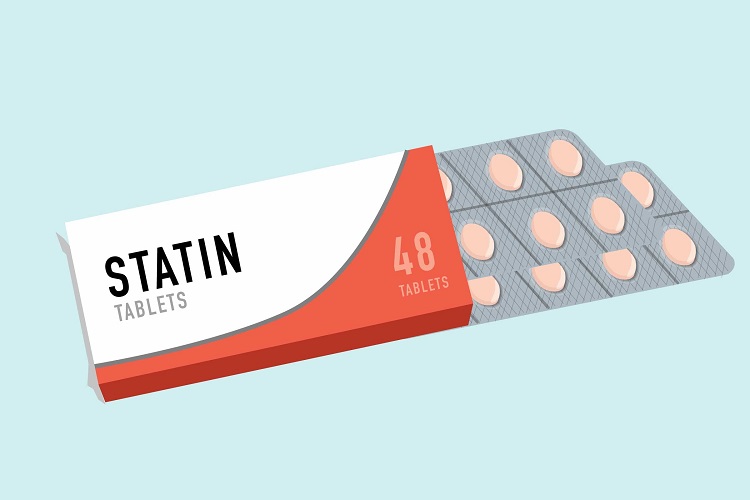
Everyone experiences the realization that they have forgotten something, no no matter how small or important. Memory lapses might be particularly worse if you have a family history of dementia, Alzheimer's, or other memory disorders. This is particularly true if they increase in frequency.
It's important to remember that memory loss develops gradually and naturally. Our memories start to deteriorate a little bit as we age. Starting as early as age fifty, a little amount of memory loss, particularly short-term memory loss, is typical with aging. But severe memory loss can be a symptom of something much worse.
When you or a loved one is going through significant memory loss, you should get medical help. Knowing who to talk to, where to look for assistance, or whether you really require assistance can be challenging. The following details will be crucial in helping you decide when to be concerned and what to do next.
There are many causes of memory loss. Some memory loss is temporary and can be corrected, while other types can be permanent. You may have issues with short-term memory loss, loss of past memories, or have the inability to make new memories. If you or a loved one are having problems with memory of any kind, it is a good idea to do some research and seek out professional assistance.
Some of the causes of memory loss can be remedied, and memory can return. Other causes could be temporary but require time to heal. Still other causes of memory loss are permanent, and can only be treated as best as possible by medical professionals.

Statins Tablet
Statins and memory loss have lately been linked, according to research. One particular class of drug used to decrease cholesterol is called a statin. Numerous studies have been conducted recently to determine whether there is, in fact, any connection between taking a statin—which millions of people do—and memory loss.
Some studies contend that there is no connection between statin use and memory loss and that a significant proportion of those on the medication are inevitably going to experience memory issues. Harvard University recently released a study with conflicting findings, nevertheless.
In the study, over a 25-year period, 26,000 people who were not taking any cholesterol medications, 400,000 people who were using statins, and 400,000 people who were on other cholesterol medications were all observed. The results showed that while a significant portion of patients using any cholesterol medication reported memory issues, most people who were not taking cholesterol drugs did not.
This would imply that either it is just a coincidence, which is doubtful, or that all cholesterol drugs can cause memory loss. It is unlikely that statins and other cholesterol drugs would have the same negative effects because of how they function and are made up. It is more likely that people who see doctors frequently do so because they are taking maintenance drugs, which makes it more likely that they may report memory issues.
Numerous other drugs have undoubtedly been connected to either permanent or transient memory loss. These medicines include muscle relaxants, tranquilizers, antihistamines, antidepressants, antihistamines, sleep aids, anti-anxiety drugs, and some stronger painkillers. When discussing your memory loss with your doctor, it is crucial to disclose all medications you are currently taking or have recently stopped taking.
The majority of these drugs won't immediately result in memory loss. The memory loss you might experience as a result of taking these medications will start out gradually and get worse more quickly over time. Typically, it takes using these drugs for a number of years before there is a noticeable memory loss. Often, if you notice memory loss symptoms right away, you can stop taking the medication, and your memory will return.
Both the quantity and quality of sleep are crucial. To ensure that your body and brain can work normally, you must obtain adequate restful sleep. You are more prone to develop memory issues over time if you regularly wake up throughout the night or don't get at least eight hours of sleep per day. If appropriate sleep habits can be formed and sleep deficiency corrected, this memory loss is typically only temporary.
There are numerous factors that can contribute to sleep deprivation. Simple sleeplessness, drug side effects, or even sleep apnea could be the underlying causes. Patients with sleep apnea frequently experience short-term memory loss prior to starting CPAP therapy. Memory can be improved if these underlying causes of sleep deprivation have been discovered and treated.
The melancholy and anxiety are typically treated in order to restore temporary memory loss. However, because anti-depressants can also result in memory loss, it is much safer to treat depression and stress with therapy and coping mechanisms.

Photo file: today.uconn.edu
Memory loss has been associated with long-term alcohol and drug addiction. Intense alcohol or drug usage over an extended period of time may cause short-term memory loss. Additionally, it might result in the loss of past memories, and you might find it difficult to recall events that occurred while under the influence of alcohol or a drug.
If one gets and maintains sobriety, this memory loss may sometimes fade with time. Long-term sobriety usually leads to an improvement in short-term memory. However, certain times in the past, particularly those when alcohol or drug misuse was at its worst, may still be difficult to recall.
Memory issues can result from nutritional deficiencies, which can affect how well the brain functions. Proteins and fats must be consumed in sufficient amounts for the brain to work properly. Particularly severe vitamin B1 and B12 deficiency can cause short-term memory loss. Supplements can frequently help to resolve this issue and restore memory. You might also think about consulting a nutritionist to find out how to include these crucial nutrients in your diet.
Strokes happen when a blood vessel in the brain bursts or when one is blocked on its way to the brain. A common side effect of stroke is short-term memory loss. Most stroke victims can remember things from the past, especially the distant past, unless the stroke is very severe. They struggle to recall details from day to day or even from moment to moment. They might speak a lot in repetitions or forget what they ate that day.
The type and severity of the stroke have a significant impact on the degree and nature of memory loss that can occur in stroke patients. The best person to test memory and determine whether that is the underlying cause of memory loss is the doctor who treated you or a loved one for the stroke.
Memory loss, either short- or long-term, is a common complication of head injuries. Just like you see in movies when someone takes a blow to the head and forgets who and where they are, complete amnesia can happen with a head injury. Most frequently, the memory loss only pertains to a brief window of time prior to the accident.
Additionally, some types of head injuries can seriously impair short-term memory and impair the ability to form new memories. Head injuries can occasionally cause a person to forget names and locations but remember significant life events. Depending on which parts of the brain were injured, a head injury can cause memory loss that is frequently unpredictable.
With a head injury, memory loss typically returns quickly. Memory does frequently come back as the brain and body recover from the trauma. However, memory loss following brain injury can occasionally be irreversible. Brain teasers and memory games that can help rebuild the brain's "muscles" and enable memory to return can be beneficial as the brain heals.
Dementia and Alzheimer's disease are two of the main causes of memory loss. Memory loss brought on by Alzheimer's disease happens over time and gets worse over time. First to suffer is short-term memory, after which patients may lose their ability to recall the past. They might lose all memory of their identity and that of their loved ones. They might eventually even lose the ability to swallow.
Alzheimer's disease leads to dementia, which is a term for memory loss that is so severe that it interferes with daily life. Dementia may also result from other brain injuries or severe, long-term alcohol or drug abuse, among other factors. In dementia, brain cells are actually losing function, making it impossible for the brain to function as it once did. Even when dementia has no known cause, the effects can be devastating.
Other, less frequent reasons for memory loss exist. Memory loss may result from some conditions, such as AIDS, syphilis, and tuberculosis, if they worsen and persist for a long time. Memory loss may result from the damage these disorders do to the brain.
Even for doctors, the precise reason of memory loss is occasionally a mystery. Even after intensive testing and investigation into the patient's medical past, it is impossible to identify the precise reason of the memory loss.
It is possible to define generic memory loss as having no known cause or situations that induce partial or total memory loss. It can be used to describe unidentified cause forgetfulness or atypical clinical findings that could be the reason for memory loss but don't match up with other recognized diseases.
While memory loss symptoms can be alarming, a poor short-term memory is frequently nothing to worry about. Even with their keys in hand, many people struggle to recall what they did with them. People often forget about big upcoming events or crucial phone calls. With all of the potential reasons why someone might experience temporary short-term memory loss, it is often unimportant.
But if you or a loved one exhibits certain warning signs and symptoms, you should probably see a doctor right away to find out the reason for and severity of the memory loss. It is better to be safe than sorry because severe mental or memory impairment may signal an underlying issue that needs to be treated right away.
Numerous social problems brought on by severe memory loss can cause depression, anxiety, and isolation. Many people who have trouble remembering important dates can worry that they are disappointing their family if they forget to call or visit someone. Some people experience depression as a result of feeling lonely and not remembering that their loved ones have called or visited them.
It's also time to get assistance if someone is struggling to carry on a regular conversation. It can be extremely stressful on a person's emotional state if they frequently repeat themselves, struggle to remember what was said from one sentence to the next, or seem to forget entire conversations right away. Help should be sought out right away to prevent further issues.